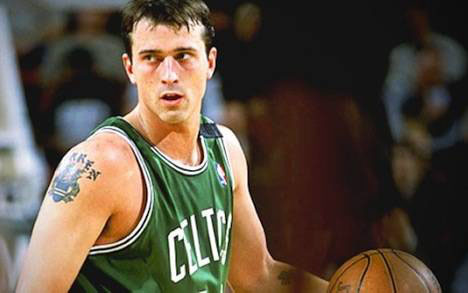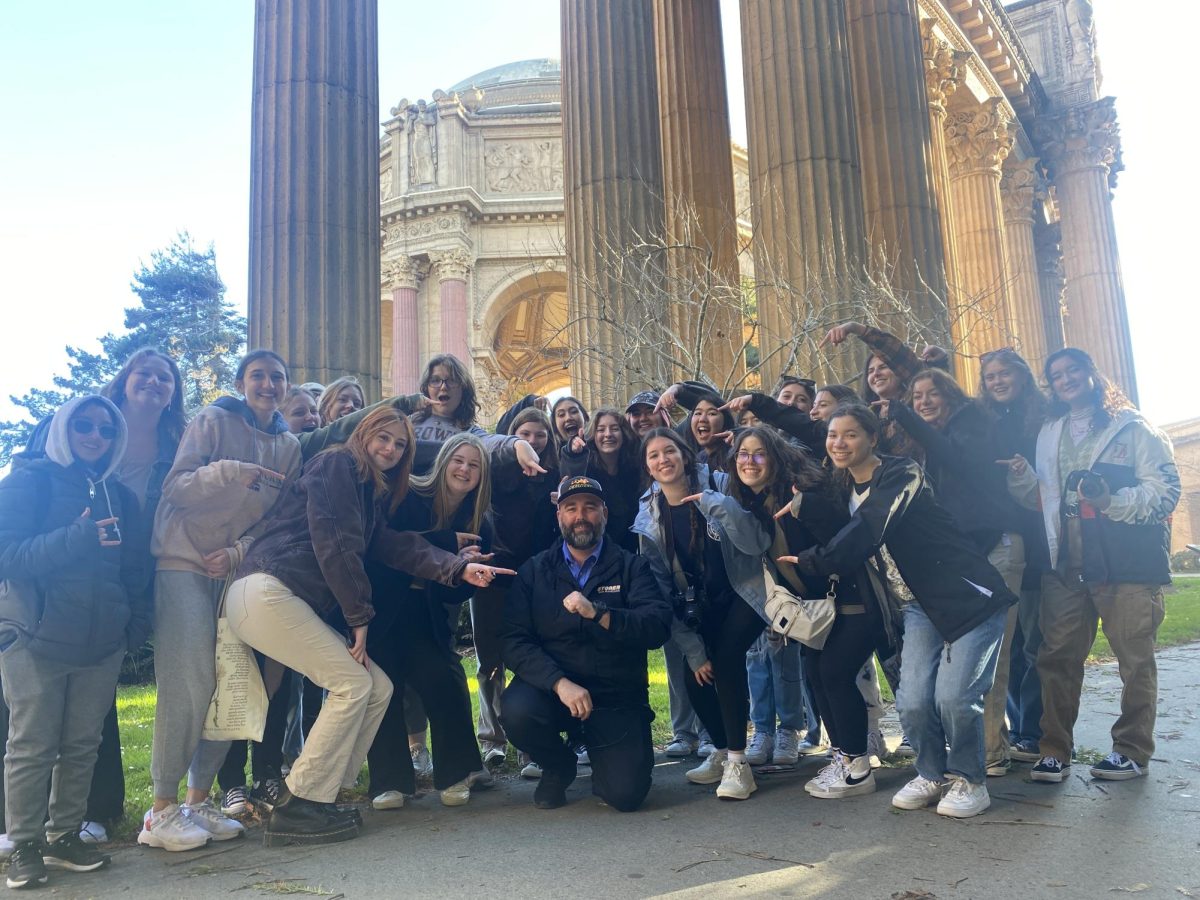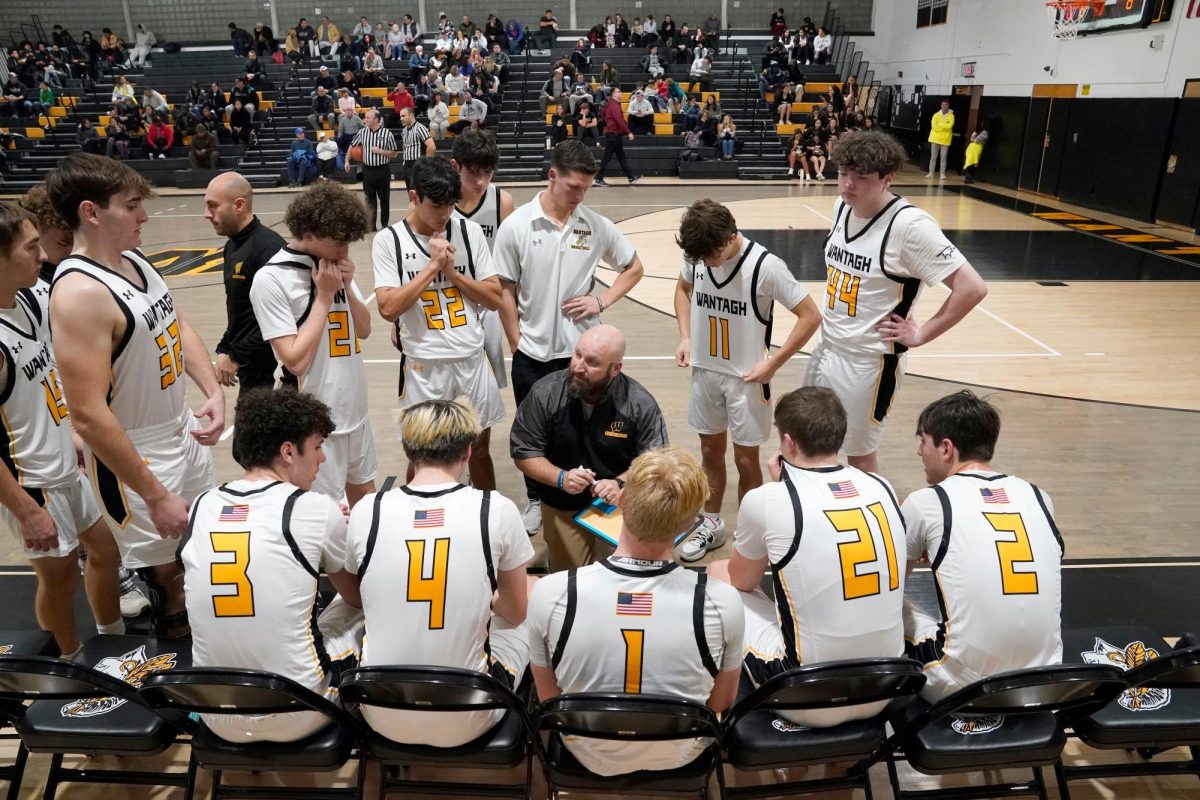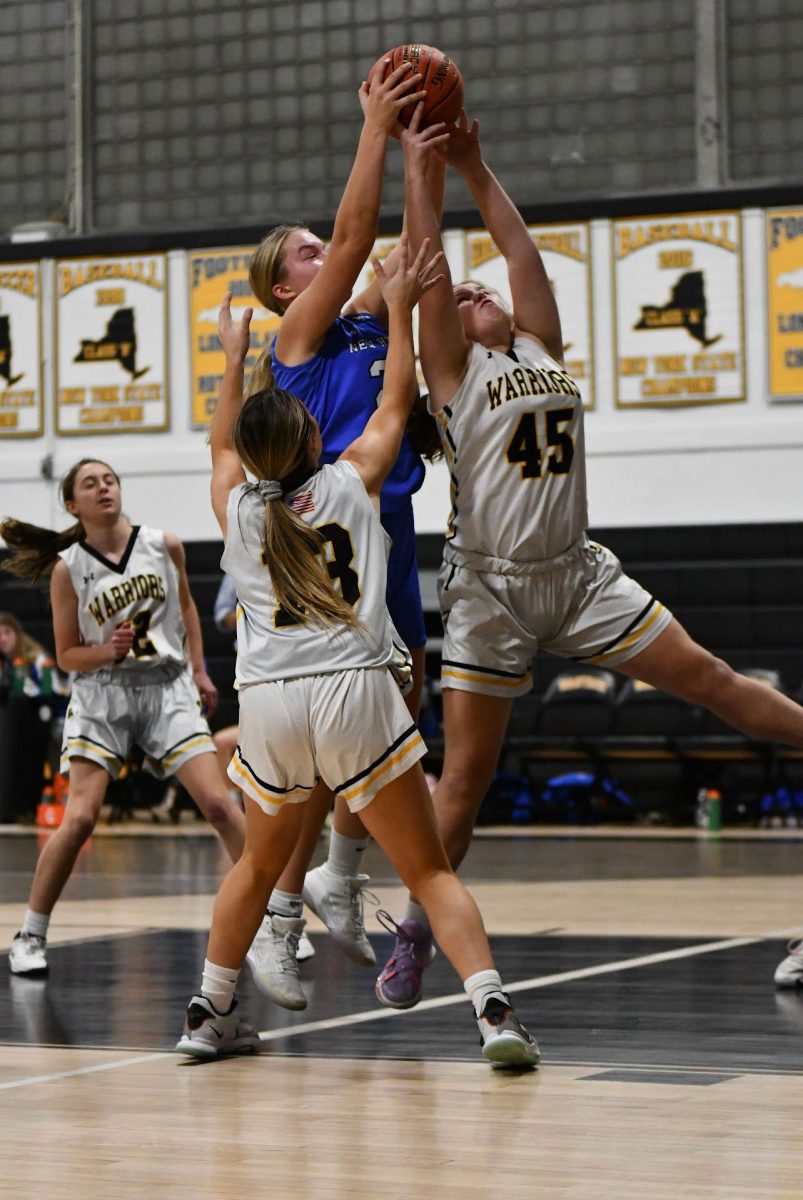Former Basketball Star Chris Herren Talks to Wantagh Students, Community about his Struggle with Addiction

January 12, 2016
Chris Herren, a former high school and college basketball star, delivered emotional speeches at Wantagh to students and then at night to the community, December 15, about his struggle with drug addiction for 14 years.
Looking back, he declares those years to be rock bottom. Herren also played in the NBA and pro leagues in other countries, but drug addiction ended his professional basketball career. The most dangerous and damaging drug he used was heroin.
Herren, 40 years old, played in the NBA for two years and then played professionally for teams in Italy, Poland, Turkey, China, and Iran. Herren once scored 63 points in a game for the Beijing Ducks. He wants his audience to realize that his basketball career is close to irrelevant. His main message is how drugs can destroy your life.
“When I walk into an auditorium, kids think ‘oh, this guy played in the NBA’ but I truly believe in my heart that when I walk out, no one even thinks about the NBA,” said Herren, who played for the Boston Celtics. “It’s like the furthest thing from kids’ hearts is that I was an NBA basketball player. I want kids to understand that I understand them, and I understand what it’s like. I’ve been there… and that’s the most beautiful part about sharing my story – being able to be relatable, transparent, and allowing kids to think about where they’re at in their life. Whether it’s cutting, bullying, addiction… I just want them to walk out and know that it’s okay.”
He lost his family and his career. He had absolutely nothing at one point. Many people believe that relapsing is a part of recovery but Herren thinks otherwise. “I think relapse is a part of addiction,” he said. He never wants to see anyone sink that low and while interviewing him, he mentioned that a part of addiction will always be with you. You don’t have to live in fear; you have to do what you can to get yourself through.
Herren’s journey of self-acceptance was long and lonely, but through the help of others he was able to get there. “I did not realize I was good enough by myself, I realized I was good enough with the help of others,” said the former Boston College and Fresno State star player. “It’s extremely powerful to sit in a room and listen to people share their personal journey and their struggle, and knowing when we walk out of the room that they’ve overcome and they’ve started over; they’re at a new beginning. That to me was extremely instrumental in my recovery.”
He wants addicts and non-addicts to realize that people struggle with these drugs and that you’ll never be alone. Additionally, he wants his audience to think about the transparency it takes to share your story and really think about what the speaker says.
When he was at rock bottom it was difficult to keep going, but he found the strength. “I always believed in my heart that I was a good person,” he said. “I always wanted to be a better father, a better friend, a better son. I just always had this monster on my back I could never get rid of. I think the belief knowing deep down inside I deserved better and that I deserved more in my life kept me going. Wanting to be the father my kids needed is a major part of what kept me going.”
The father of two teenagers said, “I don’t want anyone to take it the wrong way, my children are beautiful, I love them, but they’ll never keep me sober. I have to want to stay sober; I have to believe in myself. My kids were nine and seven when I got sober.”
Herren believes that while being a father changes a lot, he has to want to remain sober himself. However, his children are a way he gets through telling his story. When he speaks to an audience, he envisions himself talking to his kids. “They’re beautiful, just like you,” he said in his talks to Wantagh students in two assemblies.
Herren’s main piece of advice for anyone who is struggling today with a drug addiction is to talk about it: “It’s easier said than done, but I believe no one can ever help you if they don’t hear you. I can look at you all day but if I don’t know what you’re struggling with I can never talk about it with you or help you through it. There’s power in a voice and there’s strength and struggle. If you’re willing to share it, I believe you’re willing to overcome it. Talking and communicating is critical in this.”
Herren overcame his addiction by trying to see how other addicts broke free from their dependency. “It’s hard to see right away, I didn’t see it right away either,” he said. “I saw it through the eyes of others; I saw it through other people’s stories that I watched. I was jealous because I saw so much freedom and peace of mind and I didn’t understand it, but over time I did. Watching other people who were exactly where I was early in recovery, watching them come in and watching them grow was amazing. There is no greater thing than to watch someone completely broken transform and a couple months later feel totally different.”
Mrs. Breivogel, the principal of Wantagh High School, found Herren’s presentation very powerful with a great message. “Every year I try to choose or select a program to give to the student body that I think would make a difference,” she says. “I heard that Mr. Herren was a very inspiring speaker. It was clear to me that our students were very interested in what he had to say and his message just by the silence in the room.”
Mrs. Breivogel also said she was very pleased with how the community reacted. “It was a really hectic time of the year,” she said. “I knew that if even a fraction of the students got something out of the presentation they’d go home and share it with their parents and they’d come at night. When I saw over 150 people come and see him, I was ecstatic.”
Herren was also pleased with the outcome. “He thought we were a great place and wants to come back,” Mrs. Breivogel says. “He thought we were really approachable and well behaved, and he thought we listened respectfully and that we really took in his message. I’m going to absolutely extend the invitation for him to come back.”
The students also were impacted. “I thought it was very touching and it was very nice to see someone overcome addiction and share his story,” sophomore Michael Steele said. “His presentation definitely made a difference.That he was able to overcome it was pretty amazing. In terms of being an inspirational speaker, I’d love to be like that myself one day.”













